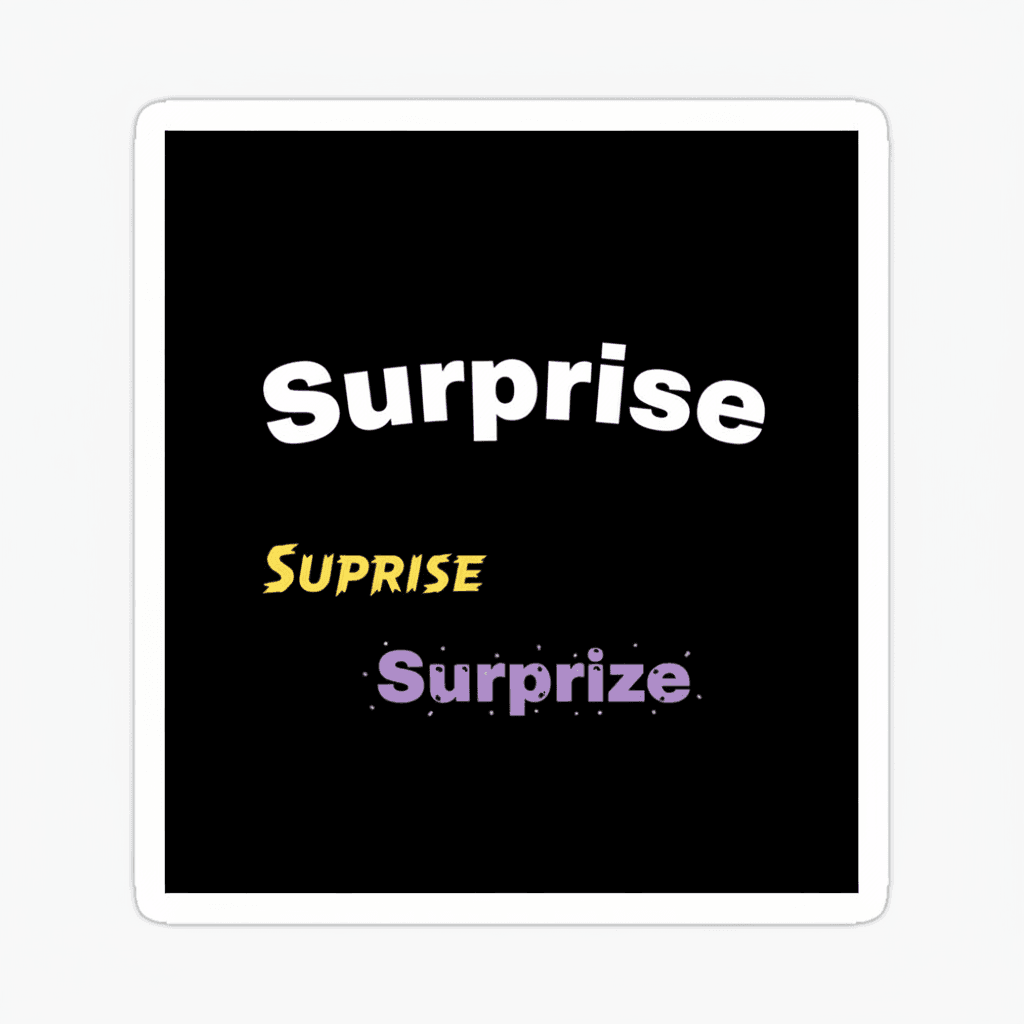Surprise Vs Suprise Vs Surprize: Which Is Correct?
 These three words look similar, but only one is correct in modern English: surprise ✅
These three words look similar, but only one is correct in modern English: surprise ✅
Here’s the breakdown:
- Surprise → correct spelling (standard worldwide)
- Suprise → incorrect (common misspelling)
- Surprize → old-fashioned or rare (historical variant)
1. Surprise: The Only Correct Form
Meaning
“Surprise” is a noun and a verb that means something unexpected or to shock or amaze someone suddenly.
Examples (10 total)
- What a pleasant surprise!
- The gift was a total surprise.
- I didn’t want to surprise her on her birthday.
- His sudden visit really surprised everyone.
- Life is full of surprises.
- The magician’s trick surprised the audience.
- I was surprised to see him there.
- The news came as a surprise to me.
- She loves to plan surprise parties.
- It doesn’t surprise me that you passed the test.
🧠 Tip:
Remember: sur- (from French, meaning “over”) + prise (from prendre, “to take”).
It literally means “taken over” — something that takes you unexpectedly!
2. Suprise: A Common Misspelling
Meaning
“Suprise” ❌ is simply a misspelling of surprise.
It’s missing the letter r after “su.”
People often mistype it because the “r” sound is subtle in speech.
Examples
❌ What a suprise!
✅ What a surprise!
🧠 Tip:
If you skip the “r,” you’ll get it wrong every time. Always spell it sur-prise, never su-prise.
3. Surprize: An Outdated Spelling
Meaning
“Surprize” with a “z” was an old British spelling used in the 1700s and 1800s.
Writers like Samuel Johnson and Jane Austen sometimes used this form.
However, modern dictionaries (both British and American) list surprise as the only standard spelling.
Examples
- Old English: He looked up in surprize. (outdated)
- Modern English: He looked up in surprise. (correct)
🧠 Tip:
Unless you’re writing historical fiction, avoid surprize.
Quick Comparison Table
| Word | Correct? | Usage | Notes |
|---|---|---|---|
| Surprise | ✅ | Standard | Use this everywhere. |
| Suprise | ❌ | Incorrect | Common typo; missing “r.” |
| Surprize | ⚠️ | Old-fashioned | Historical, rarely used today. |
4. How to Remember
👉 Surprise has an R like “shock” has a reaction.
💡 Memory Trick:
A “surprise” needs an R — because it makes you “react.”
5. Common Mistakes
❌ It was such a big suprise!
✅ It was such a big surprise!
❌ The surprize party was fun!
✅ The surprise party was fun!
6. Why It’s Easy to Mix Them Up
The pronunciation hides the “r” sound in fast speech, so learners and even native speakers forget it.
Some older spellings like “surprize” still appear in historical books, which adds to the confusion.
Modern spell-checkers (and tools like Humanizey) instantly flag suprise or surprize as errors to keep your writing clean and accurate.
FAQs
1. Is “suprise” ever correct?
No — it’s always wrong.
2. Is “surprize” used in British English?
Not anymore. It’s an old variant. Today, both American and British English use surprise.
3. Is the “r” silent in “surprise”?
Almost — it’s lightly pronounced between “su(r)” and “prise,” but you still write it.
4. Is “surprise” both a noun and a verb?
Yes!
- Noun: What a surprise!
- Verb: Don’t surprise me like that!
Practice: Choose the Correct Word (“Surprise,” “Suprise,” or “Surprize”)
(Answers are listed at the end.)
- It was a big ___ when she won.
- They threw a ___ party for him.
- I love to ___ my friends on their birthdays.
- What a wonderful ___!
- The magician’s trick really ___ the audience.
- She looked at him in ___.
- The teacher’s question ___ everyone.
- We planned a secret ___ for mom.
- His success didn’t ___ me.
- That ending was such a ___!
Answers
- surprise
- surprise
- surprise
- surprise
- surprised
- surprise
- surprised
- surprise
- surprise
- surprise
